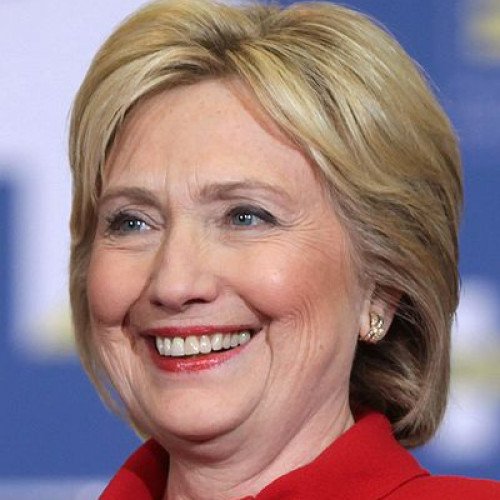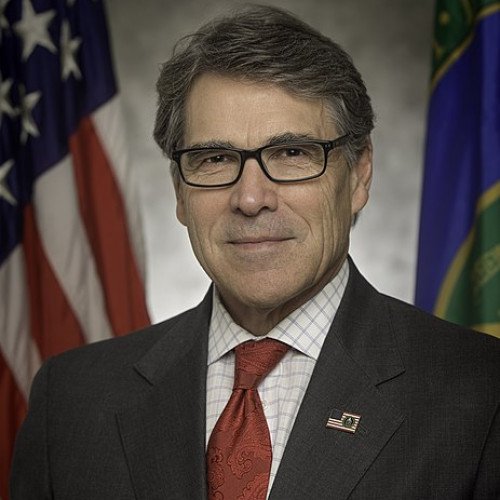Hillary Clinton VS Rick Perry

Hillary Clinton
Hillary Diane Rodham Clinton (née Rodham; born October 26, 1947) is an American politician, diplomat, lawyer, writer, and public speaker who served as the 67th United States secretary of state from 2009 to 2013, as a United States senator from New York from 2001 to 2009, and as First Lady of the United States from 1993 to 2001. Clinton became the first woman to be nominated for president of the United States by a major political party when she won the Democratic Party nomination in 2016. She was the first woman to win the popular vote in an American presidential election, which she lost to Donald Trump. Raised in the Chicago suburb of Park Ridge, Clinton graduated from Wellesley College in 1969 and earned a Juris Doctor from Yale Law School in 1973. After serving as a congressional legal counsel, she moved to Arkansas and married future president Bill Clinton in 1975; the two had met at Yale. In 1977, she co-founded Arkansas Advocates for Children and Families. She was appointed the first female chair of the Legal Services Corporation in 1978 and became the first female partner at Little Rock's Rose Law Firm the following year. The National Law Journal twice listed her as one of the hundred most influential lawyers in America. Clinton was the first lady of Arkansas from 1979 to 1981 and again from 1983 to 1992. As First Lady of the United States, Clinton advocated for healthcare reform. In 1994, her major initiative—the Clinton health care plan—failed to gain approval from Congress. In 1997 and 1999, Clinton played a leading role in advocating the creation of the State Children's Health Insurance Program, the Adoption and Safe Families Act, and the Foster Care Independence Act. Clinton advocated for gender equality at the 1995 UN conference on women. Her marital relationship came under public scrutiny during the Lewinsky scandal, which led her to issue a statement that reaffirmed her commitment to the marriage. In 2000, Clinton was elected as the first female senator from New York. She was re-elected in 2006 and chaired the Senate Democratic Steering and Outreach Committee from 2003 to 2007. During her Senate tenure, Clinton advocated for medical benefits for first responders whose health was damaged in the September 11 attacks. She supported the resolution authorizing the Iraq War in 2002 but opposed the surge of U.S. troops in 2007. In 2008, Clinton ran for president but was defeated by eventual winner Barack Obama in the Democratic primaries. Clinton was U.S. secretary of state in the first term of the Obama Administration from 2009 to 2013. During her tenure, Clinton established the Quadrennial Diplomacy and Development Review. She responded to the Arab Spring by advocating military intervention in Libya but was harshly criticized by Republicans for the failure to prevent or adequately respond to the 2012 Benghazi attack. Clinton helped to organize a diplomatic isolation and a regime of international sanctions against Iran in an effort to force it to curtail its nuclear program; this effort eventually led to the multinational JCPOA nuclear agreement in 2015. Her use of a private email server when she was Secretary of State was the subject of intense scrutiny; while no charges were filed against Clinton, the email controversy was the single most covered topic during the 2016 presidential election. Clinton made a second presidential run in 2016. After winning the Democratic nomination, she ran in the general election with Virginia senator Tim Kaine as her running mate. Clinton lost the presidential election to Republican opponent Donald Trump in the Electoral College despite winning a plurality of the popular vote. Following her loss, she wrote her third memoir, What Happened, and launched Onward Together, a political action organization dedicated to fundraising for progressive political groups. She is the current chancellor of Queen's University Belfast in Belfast, Northern Ireland.
Statistics for this Xoptio

Rick Perry
James Richard "Rick" Perry (born March 4, 1950) is an American politician who served as the 14th United States Secretary of Energy from 2017 to 2019 and as the 47th Governor of Texas from 2000 to 2015. Perry also ran unsuccessfully for the Republican nomination for President of the United States in the 2012 and 2016 elections. Born into a family of cotton farmers in Haskell, Texas, Perry graduated from Texas A&M University in 1972 and entered into the United States Air Force, serving a five-year stint and achieving the rank of captain. After leaving the Air Force in 1977, Perry returned to Texas and entered politics, serving as a Democratic member of the Texas House of Representatives from 1985 to 1991. In 1989, Perry switched parties and became a Republican, and was elected Agriculture Commissioner of Texas the following year. In 1998, Perry was elected Lieutenant Governor of Texas, becoming the state's first Republican Lieutenant Governor since Reconstruction. Perry assumed the governorship of Texas in December 2000, after Governor George W. Bush resigned following his election as President. Perry was re-elected Governor three times, becoming the longest-serving Governor in Texas history. As Governor, Perry identified as a staunch conservative, enacting conservative fiscal policies, restrictions on abortion and expanded gun rights. Long considered a potential presidential candidate, Perry officially announced his candidacy for the 2012 Republican nomination for President in August 2011. Perry initially performed well in polling and showed strong fundraising prowess, leading to him being considered a serious contender for the nomination, however his support declined following poor performances in debates and early primaries and he withdrew from the race in January 2012.Perry declined to run for re-election to a fourth term as Governor and left office in 2015, launching a second presidential campaign shortly after. Perry's second presidential campaign failed to garner substantial polling support, fundraising or media attention, leading to him withdrawing from the race after only three months. Perry was initially a vocal opponent of Donald Trump's 2016 campaign for President, however he later endorsed Trump after he secured the Republican nomination. After winning the presidency, Trump appointed Perry as Secretary of Energy and he was confirmed by the United States Senate in a 62–37 vote on March 2, 2017. On October 17, 2019, Perry reported to Trump that he intended to resign as Secretary of Energy at the end of the year. He left office on December 1, 2019.